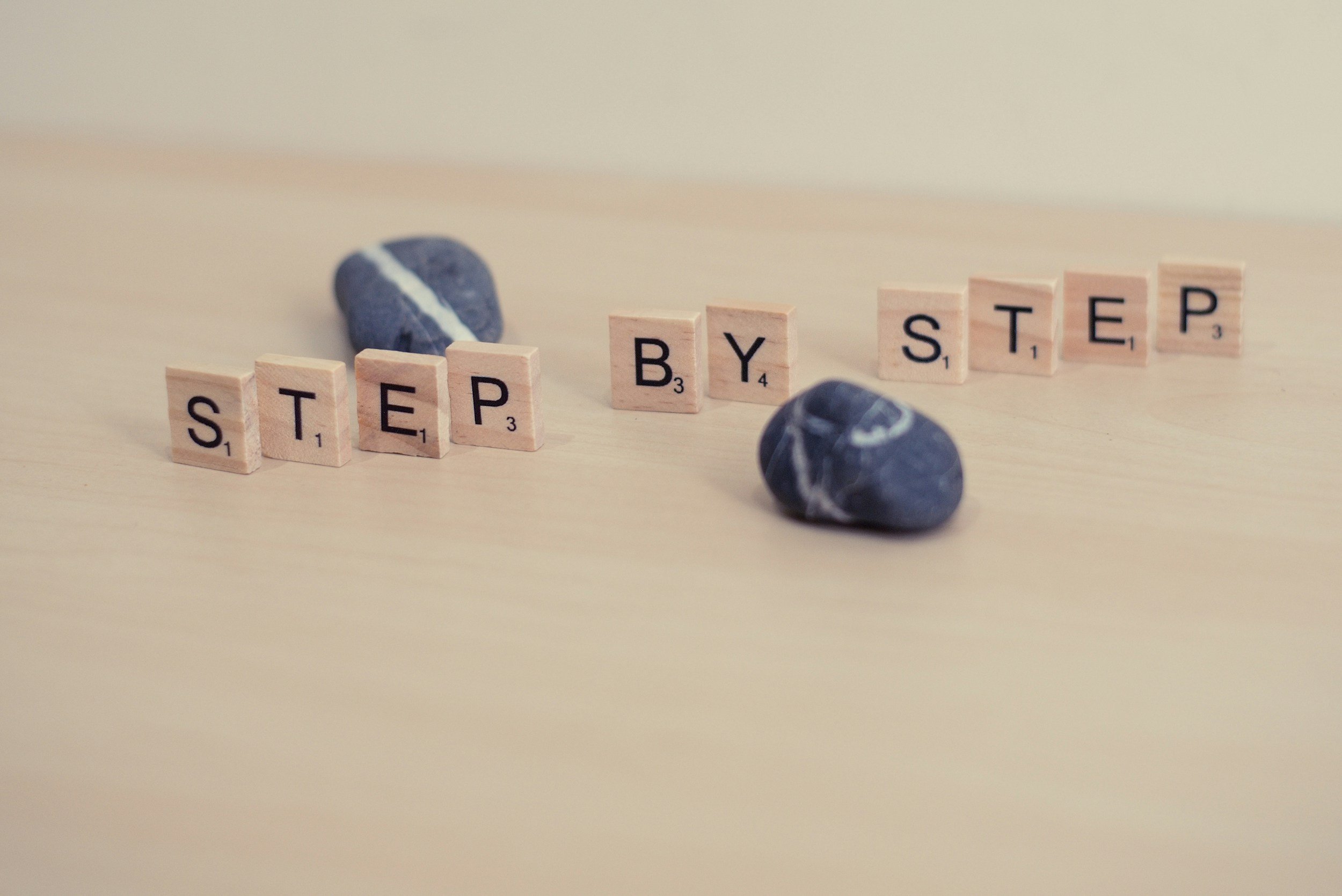
Philosophical notes…
On Materialist History
“In the debate between Samuel Moyn and Peter Gordon in Rethinking Modern European Intellectual History on ‘contextualism’ in the history of ideas, there are a few key points of convergence: they each reject notions both of ideas’ absolute transcendence of material conditions and ideas’ absolute debt to material conditions. For both, that is, the reified distinction between the two is spurious... Though their essays have different subject matters and aims—Gordon speaking to a kind of ‘high’ intellectual history of prominent thinkers, Moyn bringing readers toward a ‘proper social history of ideas’ that takes society itself as ‘ideationally founded’ —both develop a dialectical compromise between the ideal/intellectual and the material/social. This is to say that there seems to be some consensus that these dualisms in intellectual history are unhelpful. ”
Alec Israeli, “Mind, Matter, and the Question of Materialist Intellectual History” - https://www.jhiblog.org/2025/12/22/mind-matter-and-the-question-of-materialist-intellectual-history/. Interesting summary of debate about the methodological challenges in intellectual history. That an idea’s transcendence is immanent in a material context seems like a simple tension, but cultural historians have long struggled with the discipline’s emphasis upon “disincarnated minds – which take on a life of their own outside time and space” (Chartier, Cultural History: Between Practices and Representations, 1988, 23). This led annales historian Roger Chartier to posit “‘idea materials’ (matériaux d’ idées)” in response (Chartier 1988, 26). My own work aimed to take this further in light of Derrida’s grammatology in my book on enlightenment print, and more recently by integrating extended mind theory into the study of religion. In brief, I’ve been working for some time on ways to overcome the same dualism Moyn and Gordon note.
On Bibliomania
“Desiderius Erasmus lived his happiest months from late 1507 into 1508 at the Venetian print-shop of Aldus Manutius. A peripatetic scholar, [he] had lived in Rotterdam and London, Basel and Paris, true to the dictum that where the humanist goes there is his home, but it was the smudgy, dirty, cacophonous, and chaotic shop on Calla della Chiesa near the filthy Piazza Sant’ Agostin that was heaven. For nine months, Erasmus spent his short nights in a modest dorm and his long days in the print shop, expanding on his collection of proverbs Adagiorum chiliades while Aldus proofread, craftsman carefully laying sets of print and rolling paper through the press... Using my own rudimentary arithmetic to arrive at an estimate of how many volumes I’ve collected over the past thirty years and I’ve arrived at around 3,000 books, which though paltry when compared to the vast hoard of the black-clad vampiric fashion designer Karl Lagerfeld’s 300,000, is within spitting distance of Ernest Hemingway (9,000), Thomas Jefferson (6,487), and Hannah Arendt (4,000). ‘I have always imagined that Paradise will be a kind of library,’ wrote Jorge Luis Borges.”
Ed Simon - https://lithub.com/nothing-better-than-a-whole-lot-of-books-in-praise-of-bibliomania/. Needless to say I have a lot of books maybe somewhere between Jefferson and Arendt, along with a wife exceedingly tolerant of a form of bibliomania that only manifested itself after we wed.
On “to Google”
“To attempt to find useful information and instead take part in the solidification of the internet as an ad-delivery business, where you’re given no option but to be the product. While your attention is being auctioned off, the communities you once loved have become rage-bait and engagement traps, and focusing on anything longer than a few seconds feels near impossible. And you think about how different it all was: when pages loaded quickly, half the internet wasn’t locked behind paywalls, and the word ‘content’ mostly lived inside tables. You used to defend the search engine, blaming users when they said it couldn’t find what they were looking for. Your friends called you the ‘Google wizard.’ Now you can’t even find a simple news article you read last week, and you can’t help but feel deeply sad, realizing the internet that shaped you has been destroyed piece by piece.”
Jessica Camargo, “Revised Definitions of Verb ‘to Google’ - https://www.mcsweeneys.net/articles/revised-definitions-of-the-verb-to-google.
On Completing Meetings
“The main purpose of a discussion is to achieve completion and get in sync, which leads to decisions and/or actions. Conversations that fail to reach completion are a waste of time. When there is an exchange of ideas, it is important to end it by stating the conclusions. If there is agreement, say it; if not, say that. When further action has been decided, get those tasks on a to-do list, assign people to do them, and specify due dates. Write down your conclusions, working theories and to-do’s in places that will lead to their being used as foundations for continued progress. To make sure this happens, assign someone to make sure notes are taken and follow-through occurs.”
Ray Dalio - https://ideas.ted.com/9-common-sense-rules-for-getting-the-most-out-of-meetings/. There are some things to do over email, some that require a quick call or teams chat, and then there is the need for people to solve problems together in meetings. The answer to bad meetings is not no meetings, but good ones, and this essay summarizes a few tips. The final takes a bit of work, but is crucial to take action notes, tagged with responsible parties and deadlines. Next meeting follows up to note progress. It also provides a nice list of accomplishments and records if anyone asks or needs accountability in future. The holidays are a time away from such things, but this was a helpful reminder for the new year.
On Consensus
“We do not have consensus definitions of sentience, intelligence, life, or consciousness that allow us to answer, definitively, how close any synthetic or artificial intelligence gets to the real stuff. Perhaps, like with motion, heat, or natural selection, the eventual definitions for these concepts will be the same thing as their explanations. The lack of consensus is not a black mark against ethology or neuroscience, fields that have studied related concepts for centuries; it is a sign of unhurried patience.”
Patrick House - https://lareviewofbooks.org/article/what-isnt-intelligence/
On Civic Education
“But the correct approach isn’t to decree, once and for all, what does or doesn’t count as religion; it’s to ask how a plural democracy can accommodate competing visions of the good. Ours is a nation of technocratic managerialists and natural-law traditionalists, Baptists and Buddhists, nationalists and cosmopolitans. The task is to live together across these divides. Religion, whatever else it may be, is one dimension of that challenge. What students need — in Texas and everywhere else — is not a government-issued decalogue but a civic education sturdy enough to meet that challenge.”
Kwame Appiah, “Students in Texas Need Something, But It’s Not the Ten Commandments” - https://www.nytimes.com/2025/10/04/opinion/texas-separation-church-state.html. Appiah provides a helpful summary of conceptual challenges when considering religion in democratic societies. Scholars, not unlike judges, do not share a common definition. There are a variety of contexts in which they try to make sense of competing interests. As he rightly concludes, the problem is not that we don’t have a single definition, which could be applied to all cases. Rather we lack sufficiently “sturdy” “civic education.” Much more could be said at this point and presumably his forthcoming book does just that.
For instance, as I’ve written about elsewhere, this might include pedagogical practices that train students to understand diverse religions inclusive of their own, apply the term in different contexts where relevant, and respond equitably to each other as human beings with common human rights. All roads in such civic education don’t lead to Mecca, Rome, Jerusalem or any other more general religious focal point like ultimate reality. Rather, it is marked by the bare minimums required to prepare students to deliberate meaningfully in diverse democracies. The underlying problem is the coercive force with which one religious view is imposed to the exclusion of others. This paradox of tolerance is not complicated. It’s captured in a no parking sign, which aims to create pathways for other people to freely enter and exit an educational space.
Of course, in that sense, the article’s title seems to mislead. Civic education of this sort would include studying the variety of ways the Ten Commandments are presented in different traditions. Or maybe, the title relies on the premise that most students don’t need the Ten Commandments posted on their classroom’s wall because they are readily available to anyone who searches Wikipedia.
On Hegel’s Coffee
“A surprising amount of G.W.F. Hegel’s letters to friends and family touch on the subject of coffee. The best manner and machinery for brewing it (e.g., a Rumford coffee maker produced in Munich), the correct way to spell the word in Vienna (‘Kaffeh’), its beneficial qualities as a way to sharpen one’s mind (necessary when one wants to write philosophy and not mere journalism), and, most passionately of all, how poorly all substitute brews compare to that coffee which is made from real coffee beans. Chicory and carrot-based replacements, the primary offenders discussed by Hegel, are described as ‘deceptive’ and compared to ‘bear shit...’ These musings even make their way into the preface of the Phenomenology of Spirit, wherein a parallel is drawn between what might currently pass for philosophy (good common sense and claims to possess immediate revelation of the divine) and what passes for coffee (chicory root). In both instances Hegel seems to imply two things: that the surrogate simply is not up to snuff, and that too many people are willing to treat it as if it were the real deal.”
Marie Louise Krogh, “Hegel’s ‘Brown Rivulet of Coffee’: Colonies, Commodities, and Context” - https://www.jhiblog.org/2025/09/22/hegels-brown-rivulet-of-coffee-colonies-commodities-and-context/. A very good example of how materialist studies of ideas can inform political philosophy. As she concludes, “Following the ‘thing’ in this way provides a lens through which different contextual scales can be refracted against one another: the nearness of everyday life in the German territories in the early nineteenth century and the broad trans-national stakes of imperial formations and trade links across the globe.”
On Chasing Books
“Chasing makes you more active and critical of what you read. This helps you learn more. As Hanson writes, ‘search-readers often don’t have a good mental place to put each thing they learn. [...] Chasers, in contrast, always have specific mental places they are trying to fill with what they read, so they better integrate new things they learn with old things they know.’ When you chase, you continually ask yourself whether what you are reading ‘is relevant for your quest, or whether the author actually has anything new or interesting to say.’ This means you drop books that don’t advance your understanding about the questions that matter to you, so you can find the books that do answer them and transform your thinking.”
Henrik Karlsson, “How I Read” - https://www.henrikkarlsson.xyz/p/how-i-read. Most of my reading follows this pattern. I read to chase ideas, solve problems and attach ideas to mental furniture I have built up over decades. It’s also important to note that the books I tend to read are also written along these lines. As Karlsson concludes, “Good books are compressed thoughts… that someone spent two years thinking.” My own research writing similarly calls for slow reading by those interested in similar problems. Slow reading like slow food is worth the effort, and good philosophy should feel like taking in the complexity of a rich mole sauce.
On Habits of Mind
“Many philosophers think that doing philosophy cultivates valuable intellectual abilities and dispositions. Indeed this is a premise in a venerable argument for philosophy’s value. Unfortunately, empirical support for this premise has heretofore been lacking. We provide evidence that philosophical study has such effects. Using a large dataset (including records from over half a million undergraduates at hundreds of institutions across the United States), we investigate philosophy students’ performance on verbal and logical reasoning tests, as well as measures of valuable intellectual dispositions. Results indicate that students with stronger verbal abilities, and who are more curious, open-minded, and intellectually rigorous, are more likely to study philosophy. Nonetheless, after accounting for such baseline differences, philosophy majors outperform all other majors on tests of verbal and logical reasoning and on a measure of valuable habits of mind. This offers the strongest evidence to date that studying philosophy does indeed make people better thinkers.”
Michael Prinzing and Michael Vasquez, “Studying Philosophy Does Make People Better Thinkers,” Journal of the American Philosophical Association. The kind of thing you’d expect from philosophers, but some interesting evidence the skills produced through studying philosophy do make a difference.
On Deskilling
“The relationship between democracy and artificial intelligence (AI) is attracting attention, given fast-paced developments in AI and their implications for the political public sphere. The idea of ‘public reason’ can illuminate important dimensions of this relationship. Public reason is a standard of reciprocal legitimation and justificatory practice given democratic disagreement. This paper argues that AI might threaten the prospects of public reason when applied to policy debates. On the ‘civic friendship’ conception of public reason, the practice of reasoning is grounded in embodied joint action and having shared experiences. Accordingly, public reason as a reciprocal justificatory practice requires being skilled in human capacities like justice, joint action, patience and moral attention. Yet AI tools (e.g. recommender systems, personalized AI aids and AI deliberative democracy platforms) that afford disembodied, mediated interaction, threaten to deskill humans of those capacities, by creating environments that afford less opportunities to engage in activities in which the capacities are cultivated and practiced. AI tools involved in democratic deliberations can provide efficiency, scalability, and improved understanding of policy issues among participants. However, on balance, uncritical integration of such tools could deskill public reason capacities, leading to the erosion of mutual assurance between citizens, and ultimately undermining trust in democratic deliberation.”
Avigail Ferdman, “AI, Deskilling, and the Prospects for Public Reason,” Minds and Machines - https://link.springer.com/article/10.1007/s11023-025-09737-w. Interesting essay on the implications of AI and democratic practice. I’ll be teaching a week on Zuboff’s surveillance capitalism, which raises concerns about technological erosions of democratic freedoms. As well, we’ll be looking at the implications of new Habermas machines built by Google engineers recently along similar lines to this essay’s concerns. In any case, the work provides important context to consider wider popular interest in democratic AI initiatives.









